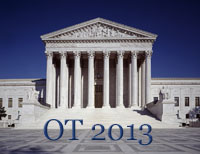Two-Thirds of Wisconsinites Support More Flexibility for Prisoner Releases
In 1998, Wisconsin adopted what may have been the nation’s most rigid truth-in-sentencing law, eliminating parole across the board and declining to put into place any alternative system of back-end release flexibility, such as credits for good behavior in prison. Subsequent reforms to this system have been either short-lived or very modest in scope. However, new results from the Marquette Law School Poll confirm and strengthen findings from other recent surveys that Wisconsin residents would actually welcome a more flexible system.
As I noted in an earlier post, the Law School Poll has asked Wisconsinites their views about criminal-justice policies in each of the past three summers. Although the Poll has revealed significant support for truth in sentencing, it has also revealed comparable or even greater support for enhanced flexibility.
In 2012, Poll results included the following:
- 85% of respondents agreed that “criminals who have genuinely turned their lives around deserve a second chance.”
- 67% agreed that “Wisconsin should recognize prisoners’ rehabilitative accomplishments by awarding credits toward early release.”
- 55% agreed that “once a prisoner has served at least half of his term, he should be released from prison and given a less costly form of punishment if he can demonstrate that he is no longer a threat to society.”

